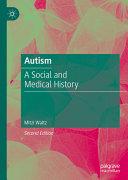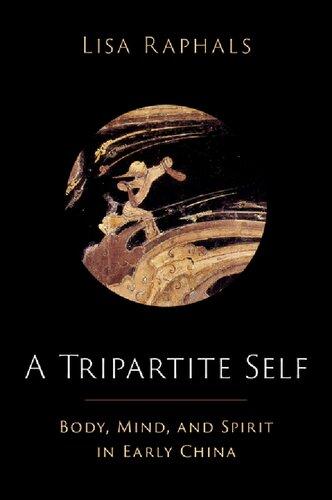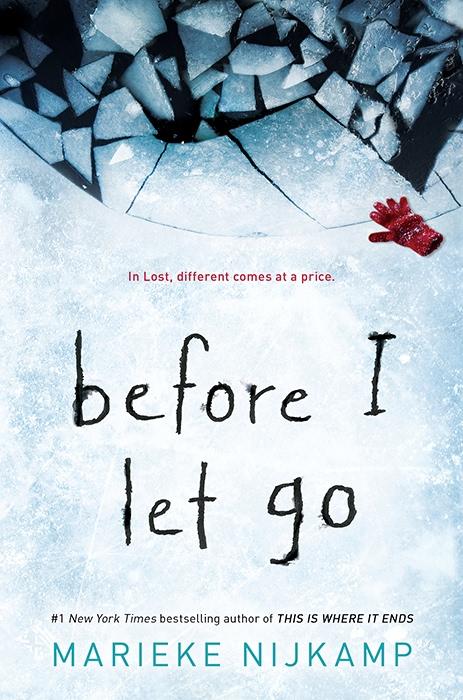Other documents randomly have different content
"Perhaps not." Cyril's manner became more resolute. "I am sorry this has come up," he said frankly. "It is not the time or place—and I forgot. But since it has, I ought to explain. I met the Lucases abroad; and I assure you, I found them most kind—as pleasant as could be. I like them immensely —yes—him!" in reply to a monosyllable. "I mean—one is so sorry for him, and he does fight so hard not to be overcome. I don't really think it's a case when everybody ought to stand aloof. I don't—really, Lady Lucas."
"You will, I suppose, permit 'everybody' to judge for themselves," said Lady Lucas. "I quite understand that Sir Cyril Devereux is perfectly independent in these matters; and time alone can teach experience. It is, of course, useless for me to assort that my unhappy nephew is unfit to associate with gentlemen. That is only an old lady's opinion —though it is held by some who are not old ladies."
"I am very sorry," apologised Cyril. "But if you were to see him now—"
"We shall, I think, do little good by discussing the question. Only I must beg you to remember one thing, Sir Cyril—that I do not meet or acknowledge Captain Lucas or his wife. And, excuse me—in your position you ought to be careful. You do not know what you may be drawn into."
Sir Cyril made a little gesture of comprehension, not of assent, and Lady Lucas swept her trailing skirts away. Sybella was on a more distant sofa, and thither the lady retreated. A murmured conference between the two began.
"You have been quite wrong, my dear," Lady Lucas said softly. "Sir Cyril ought to have been put into some regular profession—the Army, or anything—for a few years. I told
you so long ago. He will get into mischief from the sheer lack of something to do."
Then an interruption came. Jean still stood upon the rug; and Cyril remained where Lady Lucas had left him, lost in thought. Emmeline's dark sunny little face was before his mind's eye.
"I will call—of course, I will call. What rubbish!" he said to himself.
A curious croaking sound drew the attention of all—a sound as of something giving way.
"Jean!" her father called in an agitated shout from the bowwindow. "Back, Jean!!" He was too far to do more than shout, as he saw the great mirror over the mantelpiece seem to detach itself, and for an appreciable fraction of a second lean forward. Jean, with her instinct of obedience, born of long habit, sprang back, not hesitating for even the fraction of a second; while Cyril, hearing both the loud crack and the warning cry, as instinctively started forward. The huge mirror crashed heavily down; one sharp edge tearing a wide rent down Jean's white skirt, and bringing her to her knees; the other striking Cyril prostrate.
Sybella's shrieks almost drowned the loud crash of shattered glass: Sybella herself keeping at a safe distance. The gentlemen made a simultaneous rush forward; and Jean spoke calmly: "I am not hurt. Please see to Cyril. Never mind me."
Five pairs of hands lifting the massive frame released both; and Jean sprang to her feet. She had been pinned down by the weight pressing on her skirt, but was entirely uninjured.
Mr. Trevelyan held her fast, his hands visibly shaking, and his face grey. "My child! You are sure! Nothing wrong?" he said hoarsely.
Jean had never seen him so overcome.
"Nothing—not a scratch. See—only my dress!" she said reassuringly. "But—" His lips touched her forehead, with a murmured— "Thank God!"
And she hardly caught the words following, "I thought it was all up with my Jean."
Then he leant against the back of a tall arm-chair, a glazed look coming over his eyes, and Jean knew that he had difficulty in holding himself upright. Before she could speak, however, he had rallied, though not without a supreme effort of will.
"Merely a passing sensation—a touch of dizziness," he said cheerfully, in response to her glance. "Not worth attention. Come—" and he walked across the room, Jean following closely to the couch where Cyril had just been laid, white to the lips with pain.
Evelyn knelt to support his head, and Sybella hovered round about, in a state of incoherent though talkative distraction.
Cyril looked up at Mr. Trevelyan. "Jem has gone for Dr. Ingram," he said, bringing the words slowly. "I don't think it will be very much . . . The frame caught my shoulder . . . Don't touch, please—" with a shrinking gesture. "I'm only— so glad it wasn't Jean!"
Jean, to her own indignant surprise, actually burst into tears.
CHAPTER VIII.
DARK-EYED EMMIE.
"But who could have expected this, When we two drew together first, Just for the obvious human bliss, To satisfy life's daily thirst?"
R. BROWNING.
THE "queer little red house near the Post-Office," owned by Captain Lucas, had been for three years empty. It was not an easy house to let: standing just too far out of the main track for business purposes, yet too much buried in a region of shops to be attractive. Perhaps Captain Lucas asked too high a rent. One way or another, it had remained long in the hands of an aged caretaker; and the Lucases had troubled their heads little about the matter, till sudden curtailment of income came. Then, since nobody else was content to live there, and to pay a reasonable rent, Captain Lucas decided to make it his home.
The decision cost him a good deal; and he would hardly have reached it without necessity. He was not anxious to put himself in the way of relatives, who would look him in the face, and pass him by as a stranger. Captain Lucas was a man who naturally loved society, naturally delighted in pleasant companionship; and to cut himself off from intercourse with his fellow-men was like cutting off his right hand or foot; yet to a large extent, he had done and would do this. Not for a limited time only, but year after year; sustained by his courageous wife, and surely upheld by Divine power: he and she knowing, alas, too well, that only by such means could he hope to keep in check the terrible tendency which all his life had dragged him downward.
The heroism of such a strife, and of the self-denial which it entailed, could only be appreciated by those who knew him best.
But to refuse himself certain perilous indulgences, such as hotels, clubs, dinner-parties, nay, even such as taking lunch or supper with a friend, as a matter of manly self-control, was one thing; and to be treated as an outcast by those to whom he was bound by natural ties, was another thing. The first, however trying, brought a certain sense of satisfaction in his own victory over weakness. The second could bring only smarting and pain.
Moreover, he know that Dutton would be dull for his wife and child; and Captain Lucas, with all his faults—perhaps it would be more forcible to say, with his one great fault—was an affectionate man. He dearly loved his gentle wife, and his sunny Emmeline. They were all that he had to make life bright. He would have sacrificed much to bring brightness to them; but there seemed to be no choice. He could no longer afford to travel, or to pay rent elsewhere.
There was a charm of manner still about Captain Lucas: a charm which Cyril had felt at once. He was not in the least heroic-looking; not tall, and rather stout; while the face, which had once been handsome, was marred by early years of self-indulgence. Still he had retained the manners of a gentleman; and he had by nature an unusual power of making himself agreeable.
His wife and daughter loved him dearly despite all they had endured through him—despite the shame he had made them suffer. And for more than a year he had not once given way. Emmeline's tender little heart was sure—quite sure—he never would again. The poor wife would fain have felt equally sure. She better understood the power of sudden temptation.
As Cyril had told Jean, the house was furnished, albeit in an old fashioned style. Dark pictures in heavy frames half covered the walls; thick curtains shut out much of Heaven's light; chairs of ponderous make stood solemnly about the small rooms; and huge centre-tables left little space around.
Emmeline did what she could to improve matters. She arranged and re-arranged the uncompromising furniture; she draped the curtains anew; she dragged centre-tables into corners; above all, she shed the light of her own smiling presence through the little house, and in a measure transformed it—for others, rather than for herself. The shining of a star flows outward, not inward; and a blazing body like the sun may conceivably have a dark interior.
Emmeline's mental "interior" was not dark; she was too brave-spirited to be often a victim of depression. Still, when a week in the new home had gone by, she was conscious of a dreary aspect to things generally—more conscious than on
their first arrival. She had worked desperately hard; and now she was tired, and little remained to be done.
Moreover, she was labouring under a sense of disappointment, which means a worse kind of tiredness than mere weariness of back or limbs. Through the whole week Sir Cyril Devereux had never once been near the house. Nobody had been. Nobody had called. Nobody had spoken a word or left a message of welcome. The three seemed to be stranded on a barren shore, where none cared to greet them. Emmeline had known much of such isolation in her short life; yet somehow she never grew used to it, for she always saw how different life was to other people. There are some kinds of mental, as of bodily pain, to which the sufferer never does or can grow really used.
Like most girls, she had her girlish love of friends and companions, her girlish enjoyment of chatter and fun, her girlish longings and dreams. She had built a good deal— much more than she was aware—on the prospect of Sir Cyril's friendship; not so much for herself as for her parents. She was hardly more than a child yet; but she knew how much her father liked Sir Cyril, and how good it was for him to have outside interests—so long as no danger was involved—and how it cheered her mother to have her father in good spirits.
When Captain Lucas had written to tell Sir Cyril of their plans, he had replied that he "would be sure to look in directly they came." And Emmeline had set her little heart on the fulfilment of this promise.
It had not been fulfilled, and Emmeline was sorely disappointed, because she felt that it was a disappointment to her father and mother. She liked Sir Cyril herself, with a frank girlish liking; but it was honestly for their sake that
she grieved. It did seem hard that nobody could be depended on.
"Only a week, of course!" commented Emmeline. "One week is not long. But he said directly and if I were a man, I would do what I had said, if it were ever so hard."
Persistent rain had fallen all the morning and was falling still, making the Dutton pavements wet, making the Dutton world muddy. To keep up one's spirits on such a day is always more difficult than in sunshine.
Emmeline stood at the window of the crooked little drawingroom, looking across at a second-rate grocer's shop, in the open doorway of which stood a woman, contemplating the weather. There was not much else to be contemplated. A cart jogged slowly by, between the two gazers; but not many vehicles came this way. The red house stood out of the main line of traffic.
Emmeline was seventeen years old, and a pretty girl. She had childishly rounded cheeks, the bright colouring of which did not fade under fatigue; only the soft dark eyes, usually dancing with fun, had grown a trifle heavy. Her dainty little hands held a duster, for she had just finished arranging the last shelves of unpacked books.
"And now I really don't think there is anything more to be done," sighed Emmeline.
"Talking to yourself, Em?" asked a gentle voice.
Emmeline's face flashed into immediate brightness, as she turned towards a pale-faced lady, fragile and sweet-looking.
"O mother! I didn't hear you come in. Yes, I believe I was doing what that maid called 'siloloquising.' Isn't it a horrid
day? Come and look-out."
"Should we not be better repaid if we studied the fire instead?"
"Then you'll sit down in this arm-chair—" running to pull it forward. "And here is a stool—and here is a cushion. I'll tuck my duster away—and then we can be cosy. So my father has gone out?"
"He wanted to take you; but I thought it best not, as you have a cold, and he meant to go some distance."
"Oh, my cold is nothing. I wish you had told me." Emmeline knelt on the rug looking thoughtfully at a purple flame.
"Mother, Sir Cyril has never been—after all!"
"No."
"Do you think he will come?"
"I can't tell. He meant to do so, I am sure. But he has his aunt to consider; and she is a friend of Lady Lucas."
"Only he wrote and promised. I don't think he is very fond of his aunt."
"She brought him up. I suppose he owes her some submission."
"But he said the Trevelyans would call."
"I dare say they will drop their cards some day."
"Mother—" and a pause.
Mrs. Lucas put back the short dark hair which clustered round the girl's brow.
"What is your mind so busy about to-day, dear?"
"I'm thinking just now about that old lady—about Lady Lucas—" resentfully. "I'm glad you don't think I need speak of her as 'aunt,' because she doesn't certainly behave like an aunt."
"She would no doubt prefer that you should not."
"Mother, do you suppose she is a good woman?"
"I always suppose every one to be good until I know the contrary."
"But—" with a half laugh, yet still resentfully—"don't we know it? If she were good—Mother, she knows all about my father!" the girl burst out in choked tones.
The mother and daughter did not often allow themselves to talk of the family skeleton which haunted them. They would speak in vague terms of the ever-present necessity to "amuse" and "take care of" the household head; their work in life being to strengthen his resolution, to ward off peril, to aid and abet him in the daily fight. But the dread, always more or less pressing on them, was seldom specifically alluded to. Once in a way, however, the subject would come up; and Mrs. Lucas would not check her child's confidence. She could see now that Emmie's heart was full to overflowing.
"Yes, dear."
"She knows all that so well. Shouldn't you think, if she were a really good woman, she would want to do something to help? She would not leave him alone, to feel dull and miserable, and perhaps to—Mother, she must know how bad
that is for him—how much harder it makes it for him to keep on."
"I don't suppose she thinks of the question from his side at all, but only from her own."
"But then it isn't goodness—it's all selfishness."
"There's a good deal of selfishness among people—yes, even people who are more or less 'good.' And most people's 'goodness' is very much alloyed—not pure gold—not even 18-carat gold. Only a little gold, mixed with very inferior metals. I suppose one ought to be glad to find any gold at all, in anybody."
"I don't believe there is a speck of gold in Lady Lucas."
"Ah, that is just what you and I can't judge. We can't see with her eyes, you know, or understand exactly how things look to her. She may be acting most conscientiously even in keeping away from us. I believe she really is extremely kind and benevolent—to other people."
"People who don't need it."
"People who do need it."
"Oh—the poor. But then, of course, that is quite easy. People are praised for being kind to the poor," said Emmeline shrewdly.
"Yes; and she would not be praised for kindness to us. Her friends would even say—'How odd!'"
"I would not stop for such a reason."
"It is not at all impossible that Sir Cyril may."
"But it isn't as if my father—It isn't as if all that were not over—"
"Or rather, as if he were not fighting a brave battle! Even if it should not just yet be complete victory, I do think he ought to have help and sympathy . . . But that is not the way some people judge."
Emmie sighed deeply. "It seems so very very hard," she said. "When he does try so!"
"Men have to pay the penalty for past wrongdoing," Mrs. Lucas went on patiently, as if dissecting the question. "We have to pay it we with him. Even you, dear. It may seem hard—suffering for what one has not done. Yet that has to be. All wrong that is done, brings evil upon others. It is one of the great mysteries of life. By-and-by, we shall understand better—the reasons, I mean—the why and the wherefore. Perhaps not in this life. We can only see now that it is one of the laws of our being—inevitable, I suppose. If a mother is careless, her child pays the penalty . . . Your father suffers for what his father was.
"He said that once to me. Last year—" in smothered accents. "It frightened me. He said he had inherited the craving. He said it was born in him. Must one inherit such things?"
"One person may, and another may not. And if one does inherit the taste, there is no must be about using it. We have it in our choice whether to use or not to use the things we are born with. It is the same all round. You have inherited two eyes; but whether you use those eyes is at your own option. If you like to bandage them up all your life, you will slay them by disuse."
"Mother, I think that's a lovely idea."
"I have had to work these questions out by myself. If a little child uses his legs, they grow large and strong with exercise; but if you pack them in cotton-wool and never let him stand, they will wither and become useless . . . It is the same with evil things. Suppose you did inherit a taste—that taste—still it could never grow into a craving, except through indulgence . . . I think, perhaps, your father did inherit the inclination—he always says so. But, after all, it might have been nothing. If he had been guarded as a child, and brought up to shun the danger, instead of being incessantly tempted, he might have grown in time as strong as other men to resist. The weakness of will came through long yielding. That has made the struggle so hard."
Emmeline drew another long breath, "Then nobody need be conquered," she said. "Nobody need go down—hopelessly."
"Nobody, Emmie! Never! There is always help to be had—if only one is willing."
Emmeline dashed away one or two tears. "A carriage at the door," she said softly. "And—I do think it is Sir Cyril."
Emmeline's flush and brightness sent a pain to the mother's heart. She could not analyse the causes of her child's pleasure, and it made her fear for the future. Yet what could be said or done? For her husband's sake, she might not check the friendship.
Sir Cyril came in slowly, pale but smiling, his right arm bound across his chest.
"Oh, you have had an accident?" exclaimed Emmie, in distressed tones.
"Yes. Did you think me very long in making my appearance?" with a warm left-handed greeting to each.
He held Emmie's fingers a trifle longer than was quite necessary. The past talk had deepened to a lovely crimson the colour in her cheeks; and the soft dark eyes showed traces of tears, for which Cyril thought the little face looked all the sweeter. It was a sweet little face, and the very antipodes of Jean's! Two girls more unlike one another could hardly have been found. Emmie was dark and rosy, tender and plump, clinging and kitten-like. Jean was straight, slender and pale, reserved and independent.
But as for which of the two Sir Cyril admired the most? Since he himself was unable to answer that question, it is unlikely that any one else should be able to answer it for him. He only knew that he liked best for the moment whichever he happened to be with.
"We hoped to see you soon," Mrs. Lucas made answer, for Emmie was dumb.
"I should have come days ago, if I hadn't been hors de combat."
Cyril lowered himself carefully into the offered arm-chair. He was unable to bear the jar of a quick movement.
"This is the first time I have been out of the house. I am afraid my aunt will be rather scandalised; but she is gone to a kettledrum somewhere—"
Cyril did not feel obliged to state that the kettledrum was at Lady Lucas; the more since his unfortunate word "scandalised" had brought a faint flush to Mrs. Lucas' cheek.
"So I privately ordered the carriage to be ready to bring me here, after taking her there. I mustn't stay long—but—"
"I am afraid you are in pain," said Mrs. Lucas, as he broke off, pressing his lips together.
"Thanks, it can't be helped. We had a dinner-party last week—the day you came—and the large mirror over the fireplace came down with a crash. No warning at all. I was underneath, and the frame just caught me—broke my collar-bone, and damaged the arm a good deal. I shall be all right in a few weeks."
"And nobody else was hurt?"
"Luckily not, Jean Trevelyan stepped back just in time. I should have escaped too, but I stupidly started forward— heard her father shout, and didn't know what it meant."
"You thought she wanted help?" suggested Emmeline, with bright eyes.
"I suppose it was a feeling of that sort. I don't know. There wasn't time to think. One does the sort of thing instinctively."
"Is that the Miss Trevelyan you want us to know?" asked Emmie timidly.
"Yes, you will see her soon. She hasn't been yet, I am afraid, for her father has been ill. I fancy he was unwell before, and the shock upset him. After he got home, he had a sort of unconscious attack—not exactly fainting. Dr. Ingram says he is overworked, and orders—"
Cyril broke off anew, clutching the arm of the chair with his left hand.
"Emmie, ring for some tea. Sir Cyril looks as if he needed it."
"I ought not to let you—but—" apologised Cyril, with a glance at the bell.
He began to feel that he had done a foolish thing in coming out before leave was granted. The jolting of the carriage had brought on a fit of pain in the injured arm and shoulder, momentarily waxing more severe; and Cyril was never good at enduring pain. It turned him yellow-white; and he dared not move.
"Don't stir, or try to talk," said Mrs. Lucas. "I am afraid you ought to have stayed at home. Emmie, dear, that bottle of strong salts—no, I cannot tell you exactly where it is. I shall find it more quickly myself."
Mrs. Lucas vanished, and Cyril rested his head against the chair-back. Emmie stood watching him, with a gaze full of distressful pity. She was always easily stirred by the sight of suffering. For some seconds, Cyril was too much occupied with himself to notice her. Then a fresh stab in the arm brought an uncontrollable start, a change of posture, and a sharp drawing in of his breath, as if he hardly knew how to bear it. A faint sob from Emmie made him look up, to see a pair of dark eyes overflowing, a pair of sweet lips quivering. He tried to smile and to reassure her.
"It doesn't matter. I shall be all right presently."
"Oh, but I am so sorry. It is so bad now."
Tea came in, and Emmie could hardly wait for the tray to be put down. She poured out, and brought the cup to his side, forgetting to cry in her eagerness.
"Let me hold it, please," she entreated. "You must keep still."
Cyril obeyed, by no means unwillingly. The dark rosy little face, with its mingled tears and smiles, looked wondrously attractive, bending so near his own; and as he lifted his left hand to steady the cup, it came in contact with her small soft fingers. She had such a tiny round plump hand, the very antipodes of Jean's long slender one. The touch sent a curious sensation through Cyril. He began to wonder—to feel almost sure—and yet he was not quite sure. He had to lean back and to close his eyes, till the fit of pain should lessen; and Mrs. Lucas returned with the salts; and Cyril tried to analyse his own state of mind, feeling the pulse of his mental being. But it would not do. He could come to no conclusion, and thinking made his head ache; so he gave in, and left matters to settle themselves.
Miss Devereux found out about her nephew's escapade, although he was safely at home before the carriage went for her; and she gave it to him hot and strong for his imprudence. No wickeder word existed for Miss Devereux in the British vocabulary than that dire word "Imprudence."
Remonstrances and warnings floated over him, however, almost unnoticed. All the evening, between sharp twinges in the arm, and dull throbs in the shoulder, he saw Emmie's soft eyes, dark and tender and overflowing.
Jean's calm light-coloured eyes never looked thus. Dear old Jean! There was nobody exactly like her in the world—but she could not vie with Emmie Lucas in bewitching sweetness.
COMPLEXITIES OF LIFE.
"The same old baffling questions! O my friend, I cannot answer them . . .
"I have no answer for myself or thee, Save that I learned beside my mother's knee 'All is of God that is, and is to be; And God is good.' Let this suffice us still, Resting in childlike trust upon His will Who moves to His great ends, unthwarted by the ill."
J. G.
WHITTIER.
NEARLY a fortnight had passed since the memorable dinnerparty; and Mr. Trevelyan had been unwell, even ill, all the fortnight through. That one moment of dire alarm about Jean appeared to have acted on him as the "last straw," minus which he might presumably have fought on a few weeks longer.
Nobody else would have fought on half as long: so said Dr. Ingram, called in three days later.
Mr. Trevelyan made nothing of the slight attack of unconsciousness, which frightened Jean, after their return home; but all next day he was heavy and listless, unable to
employ himself. He still strove against the need for medical advice, declaring that a day or two of rest would set him up. A severe cold next laid hold upon him, however, with persistent hoarseness, and sharp rheumatic pains; and at length, he succumbed.
Dr. Ingram found the once vigorous frame of Stewart Trevelyan enfeebled to an extent which would hardly have been thought credible by any one who had witnessed only a few days earlier his apparent energy. The energy had long been a matter of iron will, not of physical strength; and the marvel was that a breakdown had not arrived sooner.
"Then I am to take care of myself, as a matter of duty," stated Mr. Trevelyan, after listening to Dr. Ingram's opinion. "Very well. If it is my duty, there's no more to be said."
Mr. Trevelyan's notion of "taking care" might not altogether coincide with his doctor's; still, so far as his reasoning faculties were convinced, he promised to make a difference. He would not for the present walk so far, or sit up so late; and he would endeavour to be in by sundown—unless urgently wanted out. Duty to his people would, of course, come first.
"Duty to them may be included in duty to yourself," suggested Dr. Ingram. "If you are not careful, your duty to them may be short-lived."
"Thanks for plain-speaking. Now I know what I am about," said Mr. Trevelyan.
Jean gave herself up to the care of her father; went hither and thither unweariedly, that he might have the less to do; and left mere calls upon friends for the future. The Lucases, like others, had to wait.
To have Mr. Trevelyan even partially incapacitated was a new experience for Jean. She had never before realised the amount of work which he daily accomplished without fuss, for the thorough care of his extensive though not thicklypopulated Parish, until now, when much had to be left undone, and much rested on her own shoulders.
He was little better yet—one dismally wet day, about a fortnight after the dinner-party. Cold and hoarseness, rheumatism and weakness, were persistent; and fight as he might against these ailments, he could not vanquish them.
For two Sundays, he had been unable to preach from sheer voicelessness. It was all very well for him to promise "not to attempt so much as usual." What he did do was the very utmost that he had power to accomplish; and none knew this better than Dr. Ingram.
The temperature was barely above freezing-point; and the intense chill of almost frozen fog and mud and prevailing damp penetrated everywhere. Mr. Trevelyan had not been out since lunch; and he had found it impossible to keep warm, even over the blazing study fire. Rheumatic aching had him in its grasp; hoarseness was worse; and he looked so ill that Jean wished it had been Dr. Ingram's day for a call. He would come on the morrow; and meantime, as occasional hot baths were ordered, Jean persuaded her father to take one early, and to go straight to bed. For a wonder, Mr. Trevelyan complied.
Somewhat later, Jean went softly into his room, to find him sound asleep; so she moved softly away.
A mass of Parish accounts, which she had taken out of his hands, required attention. It was past six o'clock, and Jean counted on a quiet hour for work. Nobody could be
expected to call late on such a day. But hardly had she taken up her pen, before a quick double tinkle of the backdoor bell sounded.
"Somebody wanting something, I suppose," she murmured, with a little thrill of impatience.
"If you please, Miss Trevelyan—"
Jean turned to face the parlour-maid, a new and raw importation.
"Yes, Elizabeth."
"Master's wanted, Miss—very particular."
"My father? He cannot go out."
"There's a man dying, Miss—up the gorge. He's dreadful bad, and he wants to see master as quick as can be."
"Impossible! Up the gorge, in his state—a day like this. What is the man's name?"
"Barclay, Miss."
Jean knew what this meant; knew in a moment, as with a flash. She recalled at once her father's last interview with Barclay. The man had been especially insolent, threatening physical force, and Mr. Trevelyan had said at parting, "I shall not call again at present. I cannot force you to listen. But remember one thing—if you are in need, send, and I will come!"
He had told this to Jean on his return; and she understood, only too well, how he would regard his own promise, as well as Barclay's necessity.
"Who has brought the message?"
"It's a man who lives near there—Smithson, the name is."
Elizabeth was a stranger to the neighbourhood.
"Call him into the study, please."
Jean was there, waiting, when Smithson entered—a large and broad-shouldered yet stooping man, with a pale face, well known to Jean as a member of the choir. He was one of Jean's greatest devotees, and would have done anything in the world for Mr. Trevelyan. His home was in a little row of cottages beyond the V-point; and, as he at once began to tell Jean, business had taken him that day past Barclay's solitary cottage. He had not entered it before during Barclay's tenancy, since the latter's determined seclusion prevented all intercourse with his neighbours; but a sound of loud groans induced Smithson to open the door. He found Barclay struck down by apparently mortal illness, though still ready to protest that he wanted no help.
Smithson, then on his way to Dutton by a shorter cut than down the gorge, had lingered only to summon his wife to the aid of the unhappy man; after which, he sped as quickly as possible in quest of Mr. Evans, the Parish doctor. No needless time was lost thenceforward; but the time already lost had settled the matter.
When Smithson once more passed the cottage, on his way from Dutton, late in the afternoon, he found his wife still present, and Barclay in worse agony than before. The doctor had pronounced it a hopeless case. Too late to do anything, he said. He would look in again next morning, and he promised some medicine meantime; but he did not expect Barclay to outlive the night.
Barclay knew all this, and his one cry, in the face of approaching death, was for the man he had persistently repelled.
"Send for the Parson! I must see Mr. Trevelyan. For the love of heaven, fetch him quick! For pity's sake, make haste!" were the entreaties and commands gasped out in the midst of mortal pain.
Smithson tried to speak of Mr. Trevelyan's ill-health, but he was not so much as listened to.
"For the love of heaven, be quick! I tell you he'll come! He promised he'd come! For the love of heaven, make haste!"
The labouring breath gave force to these imploring words.
"So I just come off sharp, for I didn't see what else I was to do," continued Smithson: "and I thought you'd know! If it wasn't a matter of life and death—! And Mr. Trevelyan that set on bein' good to him! The times an' agen I've seen him a-goin' there, and the way he's been treated! But anyway it wasn't for me to say 'No' to a man, and he dying."
"You don't think it would do to send for Mr. James Trevelyan? He would go at once."
"Barclay says he'll see none but the Parson, Miss! He's that bent on it! I asked him, and he shouted out 'No!' louder than I'd have thought he could. And I doubt there mightn't be time," in a lower voice. "He's awful bad. The doctor telled my missis, he might be gone any minute. Seems hard, if he can't have his dying wish, poor chap! But if Mr. Trevelyan ain't fit—"
Jean had never in her life so longed, for some one to appeal to; some one of whom to ask advice. How could she take
upon herself the responsibility of calling her father?—Yet how could she take upon herself the other responsibility of not calling him? Jean's was no weak nature, loving to shirk responsibilities; but this was a terrible ordeal. It might be a matter of life and death for Mr. Trevelyan! Yet, if Barclay should die, vainly craving the promised help, because she had deliberately withheld it what would her father say?
The echo of that passionate appeal—
"For the love of heaven, be quick!" filled the room, and entered into Jean's compassionate heart.
She tried to speak of her father's state, of the peril to him of such an expedition; but the words died on her lips. Jean knew already that the thing had to be.
"Wait here till I come back," she said; and she went upstairs.
What ought she to do? That question stood out prominently. She had no doubt at all as to what her father would expect her to do; but the question was, ought she to sacrifice him to the needs of Barclay?—She, his child!
It might mean the sacrifice of his health, if not worse. Jean faced this fact. In his weakened state, a long walk in such weather after dark might mean a fatal chill. The possibility was not so vivid for Jean, as it would have been for most people, since she been educated to disregard questions of health; still she was conscious of danger. Dr. Ingram had spoken serious warnings.
If she awakened her father, and appealed to his judgment, he would go. Jean knew this perfectly well. He had never been used to put his own comfort or safety before the needs of his people; and she knew that he would not do so
now. By calling him, Jean would practically decide the matter.
He would inevitably blame her if she did not call him; he would be displeased—nay, more than displeased, absolutely wrathful. Jean had never yet dared to go against Mr. Trevelyan's iron will; but she had it in her to dare, if only she could feel herself right in so going. She would be able to face his anger, if only convinced of what ought to be done. Would she be right to leave him in ignorance of Barclay's state?
Jean had fought the same battle many a time in miniature; but she had never known so hard a fight. She could far more easily have sacrificed herself than another. That her lips should be the ones to summon him to peril was bitter indeed. Yet from the main question she did not flinch. If the thing were right, she would do it. Many a woman in her place would have very easily decided to let Mr. Trevelyan sleep on, sending the messenger to Jem; but with Jean, such a course of action was impossible, unless she deliberately felt it to be her duty. Then she would be strong to do, and brave to endure all consequences. But if she saw distinctly the peril to her father, she saw no less distinctly the reverse side of the matter—Barclay's need, and Mr. Trevelyan's responsibility.
He was sleeping still when she entered the room; drops of heat and weakness standing on his brow; the face drawn and thin. A great wave of distress and perplexity rolled over Jean. She to have to rouse him from his quiet sleep; to send him forth into the chill evening air; to summon him, perhaps, to his death. And for what? For a graceless wretch who, during long months, had stubbornly resisted Mr. Trevelyan's kindness, had utterly refused his offered help.












